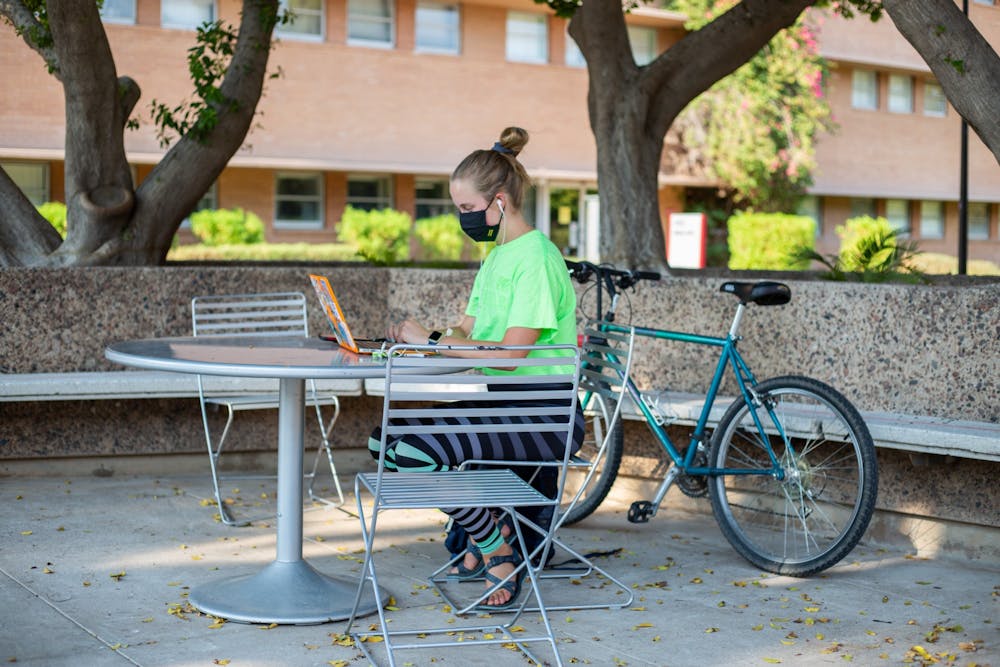Barrett, the Honors College announced on Sept. 5 that the submission of a standardized test score will not be required for the 2021-22 application pool.
While the college will not consider ACT or SAT scores for its next year of applicants, international students who are not native English speakers must submit results of an English proficiency exam, — such as the Test of English as a Foreign Language or International English Language Testing System — in order to be considered by ASU before Barrett.
This decision follows in the footsteps of many other colleges and programs across the country that have decided to waive testing requirements for their next freshman class in response to the pandemic.
The National Association for College Admission Counseling issued a statement in late August encouraging schools not to require test scores for applicants for the 2021-2022 school year, recommending a holistic approach to admissions.
NAU and UA are both on the NACAC's list of over 500 colleges and universities that committed not to penalize students for not submitting standardized test scores; ASU is not.
“The reason we (got rid of the test requirement) was really strictly regarding the availability of the tests to students,” said Keith Southergill, program director for admissions at Barrett. “We were closely monitoring College Board and ACT, and of course they were condensing locations, making it harder to get to the tests, they were cancelling lots of tests."
More than 1,450 colleges and universities around the nation have decided to switch to some kind of test-optional approach after the difficulties that COVID-19 brought to the admissions process for applicants for the 2020-2021 year.
In the spring of 2020 alone, more than one million high school juniors were unable to take an SAT or ACT due to the pandemic, according to a Washington Post article.
Many in-person testing centers are operating with a limited capacity for test takers and some are still affected by closures due to the pandemic.
“It’s inequitable due to geographic limitations, even if testing centers were able to start administering it, they lack the capacity to do it in a socially distant manner for the full population of students who usually take it,” said Molly Ott, an associate professor at the Mary Lou Fulton Teachers College whose teaching and research focuses on higher education.
Ott said alternatives such as online testing aren’t always a good option either, since many students may not have access to computers or stable internet.
Before the college's decision to waive testing requirements, Barrett has advertised its holistic application review process, in which they say they evaluate applicants based on their whole selves, not just test scores or grades.
“We want to know what they do in their spare time, we want to know their story," Southergill said. "We’re making decisions based on that more comprehensive understanding of them as people and whether we think it’s a good fit for the Barrett community."
For now, Barrett only plans to remove the standardized testing requirement for the 2021-22 application process, but Southergill said they will see how this year goes and keep an open mind when deciding whether to carry the waived testing forward.
“Honors colleges are about the programs and activities once the people are in the college,” said Sherman Dorn, director of the Division of Educational Leadership and Innovation at the Mary Lou Fulton Teachers College. “I’m pretty confident that if you wait a year and you look at the people who are in the honors college next year, they will probably look very familiar to you when you compare them to the people who surround you right now as first year students at Barrett.”
Reach the reporter at mcbushma@asu.edu and follow @meredithbushman on Twitter.
Like The State Press on Facebook and follow @statepress on Twitter.




